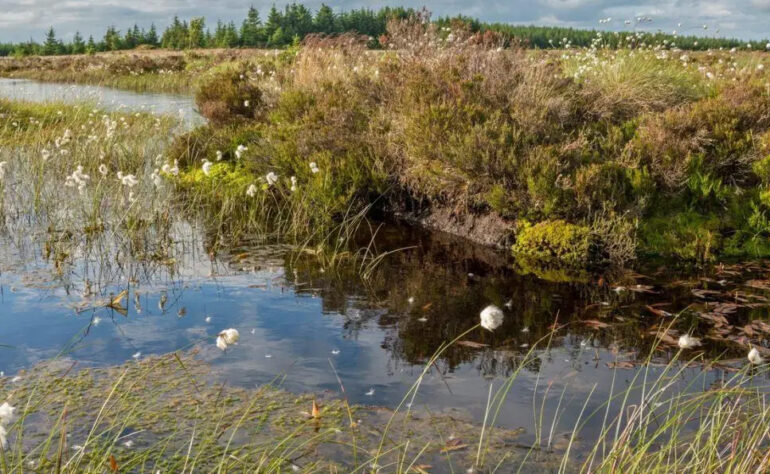A trailblazing tech company has taken its environmental credentials to another level by funding peatland restoration to help tackle climate change.
Sumo Group, the award-winning provider of creative and development services to the video games and entertainment industries, announced its intention to become carbon net-zero across all its studios by 2025, as part of its ongoing commitment towards sustainable and environmentally-friendly business practices.
As a significant first step, the company has purchased carbon offsets via eco-entrepreneurs Ark2030 equivalent to the approximate total emissions of all its UK business for 2020.
The first project to be supported is a programme to restore Britain’s peatlands, focusing on an area of nearly 7,000 square kilometres of peatland soil in northern England.
Steven Webb, General Counsel at Sumo Group, said in a statement:
“Sumo Group is committed to progressing its ESG strategy significantly and this commitment to net zero marks a major step in the environmental element of our work.
“We understand the importance of environmental sustainability to all of our stakeholders and want to take a bold step that will make a visible and meaningful difference. In addition to taking actions to reduce our emissions, we will continue to work with Ark2030 to identify other projects for support in the regions where we have studios.”
The nation’s peatlands store more carbon than all the forests in the UK, France and Germany combined. But an intensive programme of heather burning and draining lasting many decades has resulted in many peatlands becoming severely degraded. Subsequently, only 4% of England’s upland peat is in favourable condition which is converting these important habitats from carbon stores into carbon emitters.
Climate solutions like offsetting carbon through peatland restoration and tree planting are fast becoming an important income stream for alternative, nature-friendly land management, which seeks to replace intensive practices that damage the environment.
By agreeing to forgo harmful practices on a tract of land in perpetuity a landowner can receive an offset credit that it can sell to a business. The landowner can generate cold, hard cash; the business can meet its regulatory mandate to reach carbon net-zero.
Evidence suggests nature-based climate solutions could provide a third of greenhouse gas mitigation globally between now and 2030. This follows consensus being reached at the UN Climate Conference (COP26) that there is no pathway to keep global temperatures below 1.5°C without changing how land is managed.
Luke Steele, Executive Director of Wild Moors, an upland restoration organisation, welcomed the move by Sumo Group:
“After mastering the virtual world, Sumo Group has implemented real-life solutions to climate change by offsetting its carbon footprint with an adventurous programme of peatland restoration.
“The world is fast moving in a direction where restoring land for nature, carbon capture and people is at the forefront of tackling climate change and biodiversity loss. By investing in nature-friendly management of northern England’s uplands, companies are able to play a key part in enabling moorland owners to make land use fit for a climate-resilient future.”
– ENDS –
Notes for editors:
- Wild Moors works to unlock an area of uplands the size of Greater London from grouse shooting for nature restoration by 2030. By working with communities, companies and government, Wild Moors acts as a catalyst for effective and lasting change.
- A top trio of land consultancies—Knight Frank, Savills and Galbraith—have announced that the old appetite for upland estates is being replaced by a new, climate-conscious type of landowner.
- In its most recent ‘Rural Report’, Knight Frank went further by forecasting that landowners which prioritise grouse shooting over delivering natural capital and climate solutions can expect to see land values drop.
